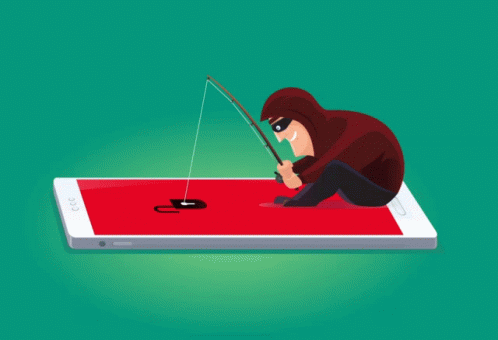What Does Smishing Mean?
The term smishing is a combination of the words “SMS” (short message service) and “phishing.” It refers to a type of phishing attack that uses text messages or SMS to attempt to obtain personal information. Similar to phishing, smishing aims to trick individuals into providing sensitive data, such as credit card numbers or account passwords, by posing as a familiar or trusted source. It often involves urgent messages that require immediate action to secure a benefit, resolve a problem, or prevent a threat. Here are some examples of how to use the term smishing:
- “I keep receiving these suspicious text messages asking for my credit card information. I think I’m being targeted by smishing.”
- “My friend fell for a smishing scam and ended up giving away her social security number. It’s important to be cautious with text messages from unknown sources.”
- “I received a text claiming that I won a free vacation, but it seemed like a smishing attempt to gather my personal information.”
- “Beware of smishing messages that ask you to click on a link and provide your login credentials. They could be trying to steal your account information.”
- “I received a smishing text that pretended to be from my bank, asking me to verify my account details. I knew it was a scam and didn’t respond.”
The term smishing originated from the combination of SMS and phishing, and it is used to describe a specific type of phishing attack that occurs through text messages. It is primarily used by scammers and cybercriminals who aim to deceive individuals and steal their personal information. It is important to be cautious and skeptical of any unexpected or suspicious text messages, especially those that request sensitive information or require immediate action.



What Does Smishing Mean From a Girl?
When a girl uses the term smishing, it is typically in reference to the actual meaning of the word, which is a type of phishing attack that occurs through text messages. Girls may use this term similarly to how guys use it, as it is not specific to gender.
Here are some key points to consider:
- Specific meaning from a girl: Girls may use the term smishing to discuss or warn others about text message scams or phishing attempts they have encountered.
- How girls use it: Girls may use smishing in conversations with their friends or on social media platforms to raise awareness about potential scams and educate others on how to protect themselves.
- How to reply: If someone mentions smishing in a conversation with you, it is important to take it seriously and be cautious. You can thank them for the information and ask for any tips they have on identifying and avoiding smishing attacks.
It is important to note that smishing is a serious issue that can lead to identity theft and financial loss. It is always best to be vigilant and skeptical of any unexpected or suspicious text messages, especially those that request personal information or require immediate action.
Example 1:
- Girl A: Hey, have you heard about smishing?
- Girl B: Yeah, it’s when scammers try to trick you through text messages, right?
- Girl A: Exactly! It’s important to be careful and not fall for their tricks.
Example 2:
- Girl: I just got a weird text asking for my credit card information. I think it’s a smishing attempt.
- Friend: Oh no! Don’t respond to it and report it to your phone carrier. They can help you block those scammers.
Example 3:
- Girl A: I saw this article about smishing attacks. It’s crazy how clever scammers can be.
- Girl B: Yeah, it’s scary how they try to trick people into giving away their personal information. We need to stay alert and educate others about it.
Example 4:
- Girl: I received a text saying I won a free vacation. It’s definitely a smishing scam, right?
- Friend: Absolutely! Don’t click on any links or provide any personal information. It’s better to be safe than sorry.
Example 5:
- Girl A: I just got a suspicious text from an unknown number. Should I reply?
- Girl B: No way! It could be a smishing attempt. Just ignore it and delete the message.
What Does Smishing Mean From a Guy?
When a guy uses the term smishing, it can have similar meanings and implications as when a girl uses it. The term itself refers to a type of phishing attack that occurs through text messages, so the general meaning remains the same regardless of gender.
Here are some possible ways that guys might use the term smishing:
- Discussing scams: Guys may use smishing to talk about text message scams or phishing attempts they have encountered or heard about. They might share stories or warnings to raise awareness and help others avoid falling victim to these attacks.
- Educating others: Guys might use smishing to educate their friends or followers on social media about the dangers of text message scams and how to protect themselves. They may provide tips and advice on how to identify and avoid smishing attacks.
- Sharing experiences: If a guy has personally been targeted by a smishing attack, he might use the term to share his experience and warn others. He could discuss how he recognized the scam and what steps he took to protect himself.
When replying to a guy who mentions smishing, it’s important to take the topic seriously and show appreciation for the information shared. You can thank him for raising awareness and ask for any additional tips or insights he may have on identifying and avoiding smishing attacks.
Overall, while there may not be a specific meaning of smishing from a guy, guys can use the term similarly to girls in order to discuss scams, educate others, and share personal experiences. It’s crucial for everyone to stay vigilant and informed about the risks of text message scams in order to protect themselves from potential harm.
Example 1:
- Guy 1: Dude, I just got a text saying I won a free iPhone! Should I believe it?
- Guy 2: Nah, man, that’s probably a smishing attempt. They’re trying to trick you into giving away your personal info. Don’t fall for it!
Example 2:
- Guy 1: Bro, I keep getting these texts from random numbers asking for my bank account details. What should I do?
- Guy 2: Ignore them, dude! Those are smishing messages. Scammers are trying to steal your money. Just delete and block those numbers.
Example 3:
- Guy 1: Yo, check out this text I got saying I won a million dollars! Should I claim it?
- Guy 2: Haha, no way, man! That’s a classic smishing scam. They’re just trying to get your personal info. Don’t get fooled by their empty promises.
Example 4:
- Guy 1: This text says my PayPal account has been compromised and I need to click the link to fix it. What do you think?
- Guy 2: Don’t click that link, bro! It’s a smishing attack. They’re trying to steal your login credentials. Always go directly to the official website to check your account.
Example 5:
- Guy: Dude, I just got a text from my bank saying there’s suspicious activity on my account. What should I do?
- Girl: Be careful, it might be a smishing attempt. Don’t click any links or provide any personal info. Call your bank directly to verify if there’s any issue with your account.
Remember, guys, always stay alert and skeptical when it comes to unexpected or suspicious text messages. Scammers are getting craftier, but with a little knowledge and caution, you can easily avoid falling for their smishing tricks.
What Does Smishing Mean Sexually?
No, smishing does not have a sexual or NSFW meaning. It refers to a type of phishing attack that uses text messages or SMS to attempt to obtain personal information. It is important to be cautious and skeptical of any unexpected or suspicious text messages, especially those that request sensitive information or require immediate action.
Origin of Smishing
The term “smishing” is a combination of the words “SMS” (short message service) and “phishing.” It refers to a type of phishing attack that uses text messages or SMS to attempt to obtain personal information. Similar to phishing, smishing aims to trick individuals into providing sensitive data, such as credit card numbers or account passwords, by posing as a familiar or trusted source. It often involves urgent messages that require immediate action to secure a benefit, resolve a problem, or prevent a threat.
The origins of the word “smishing” can be traced back to the combination of “SMS” and “phishing” to describe this specific type of attack. It is not a derived word or a popular typo. The term is widely used in the cybersecurity field to raise awareness about the risks associated with text message-based phishing attacks.
Frequently Asked Questions
Slangs similar to Smishing
Text phishing, cellphone phishing, instant messaging phishing, vishing, spear phishing, and whaling are all related to smishing because they involve different methods of phishing attacks that aim to deceive individuals into providing personal information or sensitive data. These terms describe various techniques used by scammers and cybercriminals to trick and exploit unsuspecting individuals.
Is Smishing A Bad Word?
No, “smishing” is not a bad word or a vulgar word. It is actually a term that combines phishing and SMS, referring to the use of SMS texts to try to steal personal information instead of email. It is a form of cyber attack and is not related to any offensive or vulgar language.
Is Smishing a Typo or Misspelling?
No, “smishing” is not a misspelling or typo. It is a term that combines “SMS” (short message service) and “phishing” to describe a specific type of phishing attack that occurs through text messages. It is used by scammers to deceive individuals and steal their personal information.





